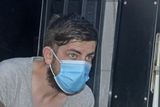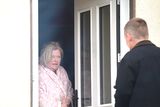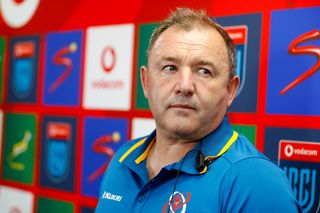Over 100,000 children missed out on school dental checks last year
Youngsters at risk of tooth decay due to dentist shortage
More than 100,000 children missed out on school dental checks last year
More than 100,000 young children lost out on school dental checks last year amid growing concerns by dentists about levels of tooth decay.
Children should have their teeth assessed and treated by a HSE public dentist in second, fourth and sixth class in primary school.
But a shortage of at least 75 of these dentists due to the HSE recruitment embargo means that out of 208,233 children eligible for screening, only 104,488 were seen last year.
The fall-off in screenings that leaves children at higher risk of tooth decay and life-long dental problems is revealed today at the annual meeting of the Irish Dental Association (IDA).
“We are missing the most valuable period when children should be screened, when new teeth are coming and when we can educate them and their parents on good brushing, foods and snacking. It is golden window of six to seven years,” Carlow dentist Caroline Robins said.
“A child’s first adult teeth come through when they are about six. Dental decay is preventable.
“But once it starts then it is dentistry for the rest of their life. It is not like a broken arm that heals.
“They now have dental disease that requires attention, maintenance and re-do for the rest of their life. We are playing catch-up and putting out a fire.”
The number of public dentists fell by 23pc between 2006 and 2022 and fewer children are screened now than before the pandemic.
“The benefit of the public health service was every child, regardless of family income, was targeted,” Dr Robins said.
Some parents were taking children to private dentists instead and in some cases, their adult teeth had decayed.
“The damage is done and in a worst-case scenario you are telling parents, ‘I’m sorry, but honestly the best thing is that the tooth be removed’, which is a last resort,” Dr Robins, who is a former IDA president, added.
Read more
“I stand back and think, what does this mean for this child for the rest of their life and what is their journey going to be?
“It is never my choice but unfortunately I am having children present to me who have adult teeth extracted.”
There is a “blind spot” in government thinking when it comes to oral health, she added.
Fintan Hourihan, chief executive of the IDA, accused the HSE of failing to deliver in its duty and said there had been a 31pc increase in missed appointments since before the pandemic.
“There is huge uncertainty over the service as the Government appears to be suggesting that children should be seen by private dentists, 90pc of whom say the priority should in fact be on rebuilding the public dental service,” he said. “This political uncertainty is making it more difficult to recruit into the public dental service.”
The HSE said it could not hire public dentists who were not at consultant level due to the recruitment freeze.
The Department of Health has pointed to the national oral health policy, Smile agus Sláinte, which aims to expand and maximise the workforce in oral healthcare.
Join the Irish Independent WhatsApp channel
Stay up to date with all the latest news














